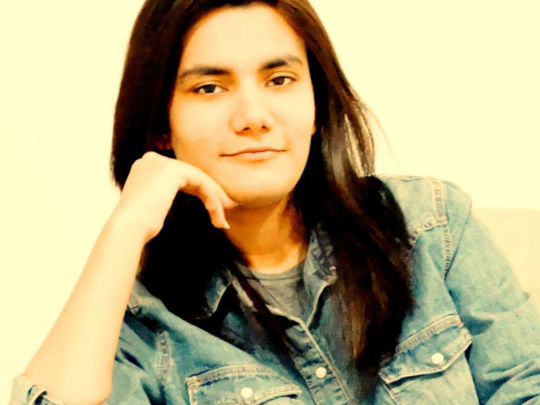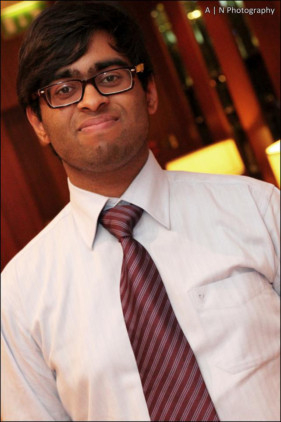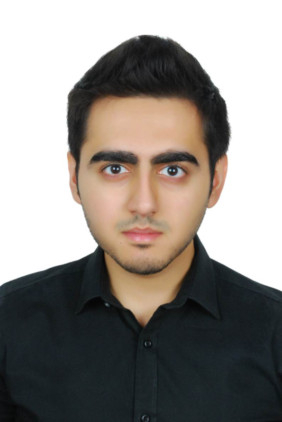
16:37 Gulf News: The art of photography is getting destroyed by the rise of camera phones.
16:39 Hira Mariam: I disagree because more people are now taking pictures and I call that the democracy of photo literacy. For instance, Harry Potter is widely acclaimed not because of the author J.K Rowling but because of the impact he had on people’s lives. Similarly, camera phones are used to share day-to-day photographs of people. If you look at camera phone photography from a globalisation lens, you would agree that camera phones are not destroying professional photography. In fact, it is encouraging us to search about photographers, the way they take pictures and set their angles. Camera phones are just losing out on pixels but it’s not destroying the art.
16:40 Chiragh Bhatia: I agree that camera phones are killing the art of photography as it is now being used as a communicative tool. With the advent of Twitter, Instagram and Snapchat, people are now using photos to tell their stories.
16:41 Naazneen Kallivalappil: Any art is only art in the eye of the beholder. If photos are manipulated to mislead or distort, that is a different case. If it’s manipulated to enhance the beauty, what is the harm? It’s done to bring satisfaction to the beholder, and that’s what art is all about.
16:41 Chiragh Bhatia: Photography as an art form continues to be restricted to the realm of conventional cameras; a device that’s primary purpose is the making of photographs.
16:42 Naazneen Kallivalappil: Owning a camera doesn’t make you a good photographer. It’s not the intention, the expense, or the legitimacy of the equipment that makes a good photograph. It’s the skill of the person who took it, regardless of the equipment.
16:44 Hira Mariam: Machinery should never become the medium of judging talent. Art is everywhere, you cannot stop senses from perceiving what it wants to perceive.
16:44 Chiragh Bhatia: Same goes to all photographs out there on these social networking sites; selfies and filters that make the photographs and their subjects aesthetically pleasing but are of no artistic value.
16:44 Naazneen Kallivalappil: Technology that makes it easier for people to express themselves creatively should be embraced. It also forces the experts to keep up with the tools, learn new skills, and try new techniques to advance their own art and keep it fresh.
16:44 Gulf News: Technology is destroying traditional art form and prevents developing skills.
16:46 Chiragh Bhatia: I disagree because if technology is used properly, it enhances our knowledge of art forms. It is now becoming easier to study a lot over the internet and share your work for critique. I am a self-taught photographer and I thank the internet for helping me find the right means to learn it.
16:47 Hira Mariam: I disagree as the photographs you take are more likely to spread, so you are giving chance to a lot of people to critically observe your talent or level of skill. The camera phone is now always with you and you can connect to the internet and this enables you to post your content on various social networking sites. Photography is technology, so, how can it destroy itself? A great example of this is a recently launched smartphone with a smart camera with built-in wi-fi. This enables you to send your photos to social networking sites and e-mail contacts right from the camera. With this in mind, it would be wise to say that technology and art must be encouraged to run parallel to each other rather than opposing each other.
16:47 Swaroop Nayak Nayak: I agree that the technology is destroying traditional art and prevents developing skills. From my personal point of view, no matter how revolutionary the camera quality in a phone becomes; it can never match the ones taken by a professional camera and the joy of taking photos with a DSLR.
16:50 Naazneen Kallivalappil: I disagree as the beauty of the art of photography is eternal. Technology is just a way of making the job easier, flexible and more creative and it cannot kill inborn talent.
16:56 Gulf News: Photography is about capturing a moment, the device does not matter.
16:58 Chiragh Bhatia: I agree that the device does not matter. However, with the advent of easy to use camera phones, the quality of moments that we deem ‘photo-worthy’ has gone down tremendously.
16:58 Naazneen Kallivalappil: We should just learn to accept that the visual culture is changing. Yes, camera phones are amazing for documentation as well as art photography. I do agree that cameras are far better for photographs, but that doesn’t mean that when we take a picture from an iPhone it’s not just as artistic. Images are not objective but subjective. Let art be what it is regardless of how it’s made, as long as it doesn’t hurt anyone.
16:59 Swaroop Nayak Nayak: I agree as the purpose of photography is to revisit all the memories we have gone through by giving a visual aid. However, the medium of the device should be decent enough.
17:00 Chiragh Bhatia: If one compares a photographer and a common person, the choice of moments and the way they are captured will show how the camera phone culture has spoiled the strength that a photograph used to have.
17:00 Hira Mariam: I agree. Photography is all about stealing moments and it doesn’t matter whether you are wearing a fancy dress or not. It’s about how you steal.
17:00 Naazneen Kallivalappil: I agree. Photography really isn’t about the camera any more than an oil painting is about the brushes or even the paint. It isn’t even necessarily about the image that results. It’s the creativity inside the artist, who wants to capture what he or she sees and feels. Camera phone photography and video belongs to the category of pictorial or abstract images, and not that of ‘bad photographs,’ what’s indecent in that?
17:05 Chiragh Bhatia: I feel that camera phones haven’t actually degraded photographs in the way they look but they have degraded the quality of moments that we capture. DSLR’s and medium format cameras continue to be better in terms of quality and control.
— Compiled by Donia Jenabzadeh/She is a trainee with Gulf News















